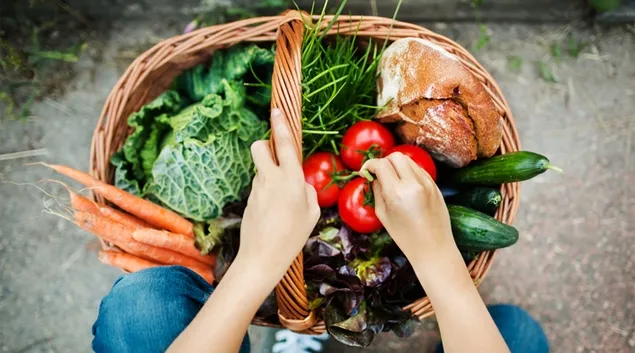
Photo: Hinterhaus Productions/Getty Images
Social health company Pyx Health, which sometimes works with health plans to reach vulnerable populations, has acquired FarmboxRx, a healthcare food company that features fresh fruits and vegetables as a covered health intervention.
The acquisition came on the back of a $47.5 million investment from S2G Investments, a multistage investment firm focused on food and agriculture, in partnership with TT Capital Partners, which first invested in Pyx Health in 2023.
The two companies called the healthcare and food systems "siloed" and said the goal was to drive innovation.
WHAT'S THE IMPACT
Pyx Health and FarmboxRx both billed themselves as mission-driven organizations that work with health plans to provide personalized, scalable support for members. Pyx Health's mentor-driven care navigation model addresses nonmedical drivers of health, such as loneliness and other support needs, while FarmboxRx delivers customized food boxes tuned to specific health conditions and goals.
The companies said the combined platform will help address food insecurity by integrating nutritional support into care pathways, and by enabling health plans to incentivize healthy behaviors, such as scheduling preventive visits and completing health assessments.
"Many health plans have the goal of increasing member engagement to help close care gaps," said Pyx Health CEO and Cofounder Cindy Jordan. "But to do this, first you have to build trust. That's where Pyx Health comes in, and bringing FarmboxRx under our umbrella is a catalyst for this by showing our members we care about helping them meet critical needs."
Pyx Health said it plans to serve more members in the Medicare, dual-eligibles and Exchange populations.
The companies said they're already working to integrate their platforms and operations in a seamless expansion.
THE LARGER TREND
A 2019 study by investigators from Brigham and Women's Hospital, in collaboration with investigators at the Friedman School of Nutrition Science and Policy at Tufts University, found that suboptimal diet costs approximately $300 per person, or $50 billion nationally, accounting for 18% of all heart disease, stroke and Type 2 diabetes costs in the country.
A prescription for healthy food could not only improve patients' health but also save more than $100 billion in healthcare costs, according to a study published in the Public Library of Science.
Such prescriptions can improve health outcomes for Medicare and Medicaid beneficiaries, and the findings showed that the predicted economic benefits would be realized if 20% of the cost of supermarket fruits and vegetables were covered through Medicare and Medicaid – dubbed the "F&V incentive."
Under an alternate scenario, the "healthy food incentive," 30% of the cost of fruits, vegetables, whole grains, nuts/seeds, plant-based oils and seafood would be covered.
That's not the first time food has been viewed as a means of achieving potential cost savings. Prior research has shown that meal delivery programs, such as Meals on Wheels, reduce the cost of healthcare in dually eligible Medicare and Medicaid beneficiaries. Food has also been proposed as a possible means of cutting treatment costs for diabetes patients.
Jeff Lagasse is editor of Healthcare Finance News.
Email: jlagasse@himss.org
Healthcare Finance News is a HIMSS Media publication.